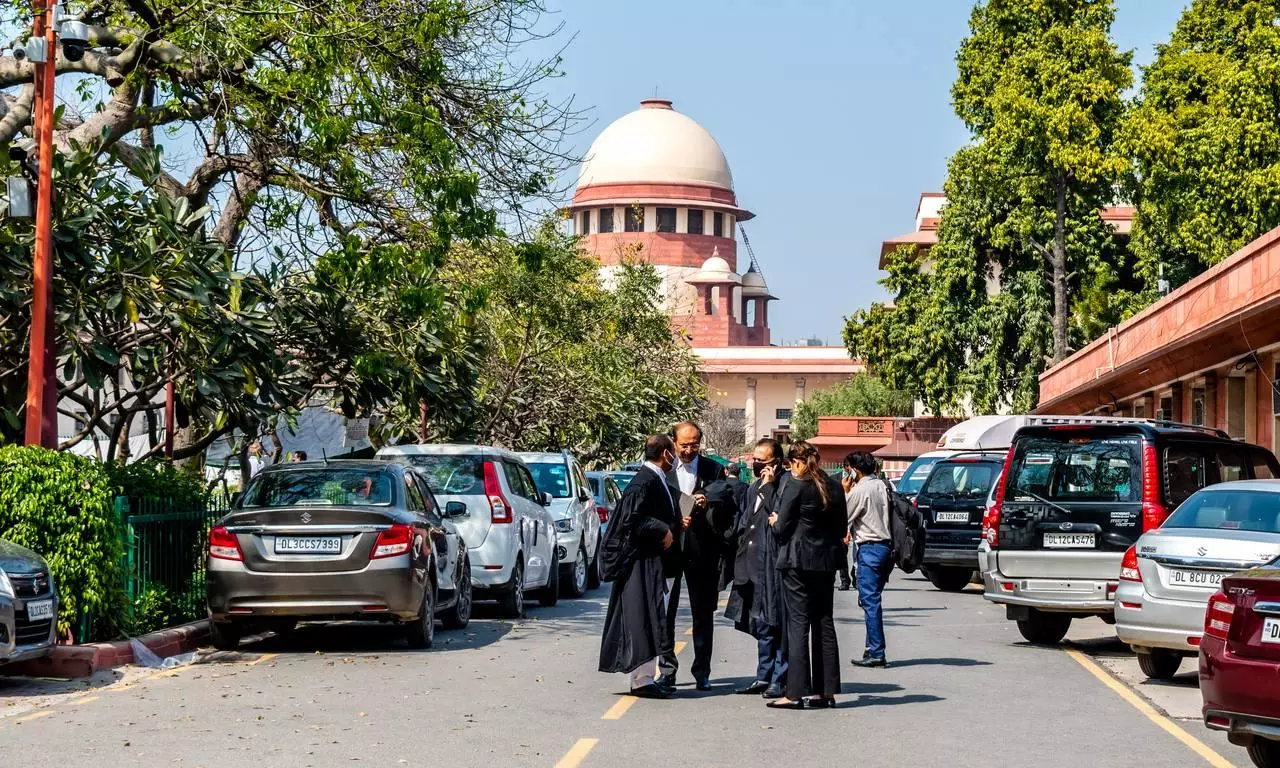
The apex court bench justified the order, saying that recruitment of fresh law graduates have been appointed as judicial officers without a single day of practice at the bar has not been a successful experience. Photo: iStock
SC restores 'minimum 3-year court experience' condition for judicial postings
A bench of CJI BR Gavai, Justice AG Masih and Justice K Vinod Chandran pronounces verdict in All India Judges Association case, with support from several HCs

In a landmark judgement impacting several advocate aspirants targeting judicial postings, the Supreme Court on Tuesday (May 20) restored the earlier condition that a minimum practice of three years as an advocate is mandatory for a candidate to even apply for entry-level positions in the judicial service.
This decision was reinforced by the opinions of several state high courts, which had similar opinions on the required experience for a magistrate posting.
More or less, all high courts took a stand that a prior practice of two or three years is required for efficient functioning as judicial officers. Most high courts and states are of the view that the entry of fresh law graduates to judicial service was "counter-productive". Sikkim and Chhattisgarh were the only high courts that stated that the 'three years of practice' clause need not be restored.
'Not a successful experience'
A bench comprising Chief Justice of India BR Gavai, Justice AG Masih, and Justice K Vinod Chandran pronounced the verdict in the All India Judges Association case, explaining that there has been a decrease in the ability of judges who directly enter service without prior court experience.
They further said, "For the last 20 years, during which the recruitment of fresh law graduates have been appointed as judicial officers without a single day of practice at the bar has not been a successful experience. Such fresh law graduates have led to many problems."
The bench also stressed the fact that these judges, from the very day when they assume office, deal with the issues of life, liberty, property, and reputation of litigants. Knowledge based on law books or pre-service training could not be an adequate substitute to the first hand experience of the working of the court system and administration of justice that they get as an advocate.
Removed in 2002
In 2002, the Supreme Court had done away with the minimum practice requirement for the first time, allowing fresh law graduates to apply for the Munsiff-Magistrate posts.
However, applications were later filed in the Supreme Court seeking the reinstatement of the condition that only lawyers with prior experience could apply for these postings. Several High Courts also backed the move to reinstate the minimum practice requirement.
Also read: 'Entire nation in shame': SC orders probe against MP minister over remarks on Col Qureshi
The Court had reserved judgment on the applications on January 28, 2025, and after the judgment was reserved, the Court stayed the recruitment process which was initiated by the Gujarat High Court without the minimum service condition.
Conditions to be fulfilled for eligibility
The implementation of the condition brings new changes to the route in which candidates prove their eligibility for the posts. A certificate by an advocate having a minimum standing of ten years, endorsed by the judicial officer of that station, will be sufficient to show the fulfilment of the condition.
In case of a person practising at the Supreme Court or the High Court, a certificate by an advocate having a minimum standing of ten years, endorsed by an officer designated by the Court, will act as proof. Experience as law clerks can also be counted towards the three years' practice condition.
Apply only to future recruitments
Another important distinction given by the apex court was that the period of practice could be reckoned from the date of provisional enrolment. The said condition will, however not apply to recruitment process already initiated by the high courts before today.
In other words, this condition will apply only to future recruitments and not applicants who are already selected and part of the system.
The Bench's judgment also issued directions regarding the promotion quota for Limited Departmental Competitive Exam, along with the main decision.
Next Story

